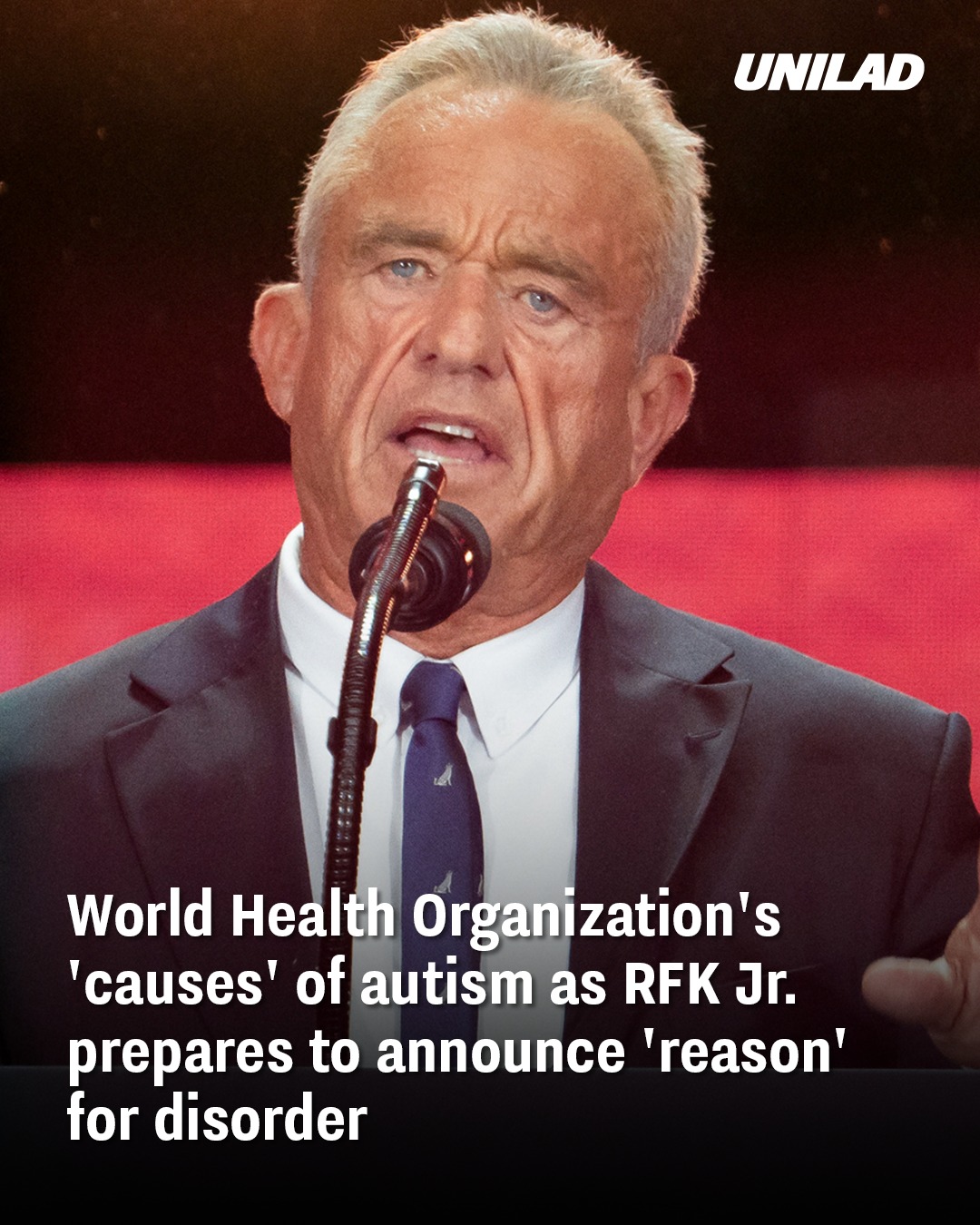The World Health Organization (WHO) offers a broad view on the causes of autism, citing a combination of environmental and genetic factors as likely contributors. As Robert F. Kennedy Jr. prepares to announce his own findings, there is mounting attention on his claim that the use of Tylenol (paracetamol) during pregnancy could be a possible factor in the rising cases of autism.
WHO’s View on Autism Causes
Autism diagnoses, particularly in children aged five to eight, have surged dramatically in recent years. According to Dr. Leonard Sax, a family physician with over 30 years of experience, autism diagnoses have tripled in this age group between 2011 and 2022. This increase has prompted the scientific community to explore various potential causes.
The WHO states that autism is likely the result of a mix of environmental and genetic factors. Factors such as parental age, prenatal exposure to air pollutants, severe birth complications, and diabetes during pregnancy have been identified as possible contributors. Additionally, WHO acknowledges that prenatal exposure to certain medications—such as the seizure medications valproate and carbamazepine—has been found to occur more frequently in children with autism.
The WHO’s stance is clear: no single cause has been identified for autism. Rather, it is a complex disorder that likely involves multiple contributing factors, including both genetic predisposition and environmental influences.
Robert F. Kennedy Jr.’s Controversial Announcement
As a leading figure in the movement questioning vaccine safety and the environmental causes of autism, Robert F. Kennedy Jr. is now gearing up to reveal his own findings on the potential link between autism and Tylenol use during pregnancy. The 71-year-old health secretary in the Trump administration has reportedly launched a global research initiative, collaborating with hundreds of scientists to explore the issue. His announcement is expected to shed light on a possible connection between the common painkiller and an increased risk of autism.
Kennedy Jr. is said to be preparing a major public announcement that could change the conversation around autism’s causes. According to reports, the Trump administration is planning to warn U.S. women against taking Tylenol during pregnancy, unless necessary for managing a fever. The basis for this caution comes from preliminary research that suggests a potential link between paracetamol use during pregnancy and autism in children. However, it’s important to note that this hypothesis has yet to be substantiated by peer-reviewed scientific studies.
In a cabinet meeting earlier this year, Kennedy Jr. shared that the research effort would provide more answers by September, with the possibility of eliminating certain environmental exposures that may contribute to the autism “epidemic.” He expressed confidence that the findings would offer groundbreaking insights into autism’s causes.
Contradicting WHO’s Position
This announcement from the Trump administration would mark a direct contradiction to the WHO’s position. While the WHO acknowledges the complexity of autism’s origins and points to a combination of genetic and environmental factors, it does not single out any one cause. The potential link between Tylenol and autism has yet to be proven, and the WHO continues to emphasize the need for a comprehensive approach to understanding autism, without focusing on a single factor.
Kennedy Jr.’s forthcoming announcement has already sparked controversy, with critics questioning the validity of the research and whether it could create unnecessary fear around a commonly used over-the-counter medication. The WHO’s established understanding that autism is multifactorial offers a more nuanced and scientifically backed perspective.
The Public Reaction and Future Implications
The impending announcement from Robert F. Kennedy Jr. and the Trump administration is poised to ignite a heated debate. If the findings prove to be true, it could have wide-reaching implications for how medications like Tylenol are used during pregnancy. For now, however, these claims remain unsubstantiated, and it’s important for the public to approach them with caution until further research is conducted.
While the WHO continues to support a broader, more evidence-based understanding of autism’s causes, the spotlight is now on Kennedy Jr. to substantiate his claims and provide more clarity on this controversial issue.
For more on autism and other related topics, check out these articles:
- Man Loses 360 Pounds Naturally: Internet Rallies to Support His Next Step
- Tammy Hembrow’s Bikini Photos Are Stirring Controversy: Here’s Why Everyone’s Talking
As the research unfolds, the dialogue surrounding the causes of autism and the potential role of medications like Tylenol will continue to evolve. The scientific community and public alike will need to stay informed as more data emerges on this complex issue.



